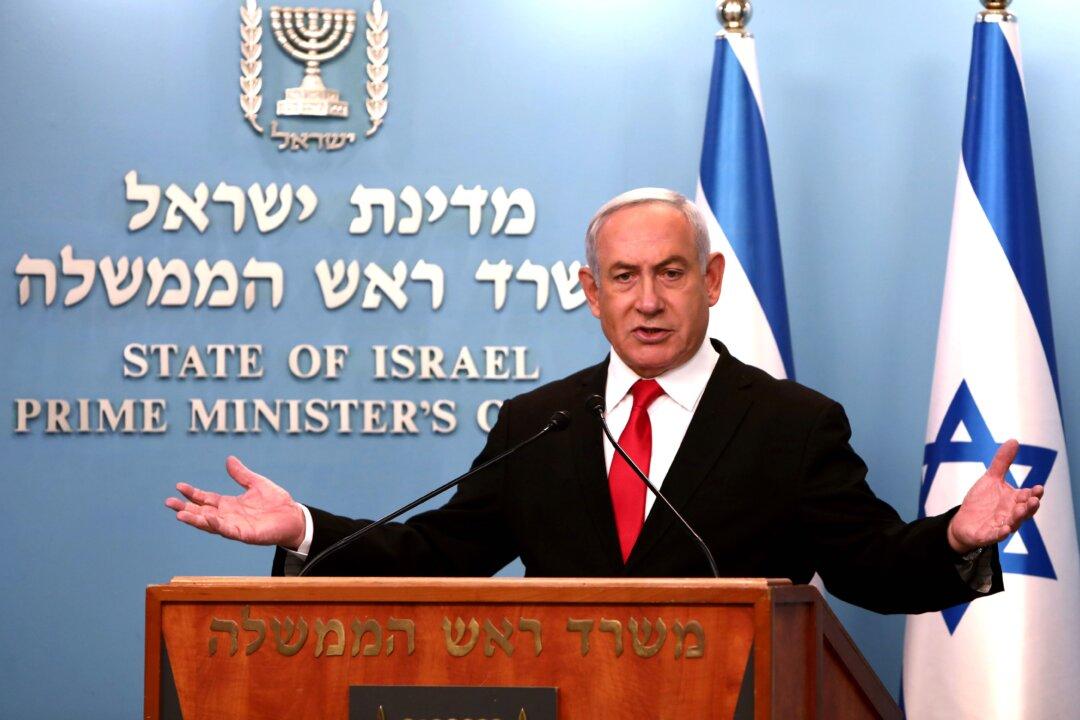JERUSALEM—Israeli Prime Minister Benjamin Netanyahu and his chief rival announced Monday that they have forged a deal to form an “emergency” government, ending months of political paralysis and averting what would have been a fourth consecutive election in just over a year.
Netanyahu and former military chief Benny Gantz, leader of the Blue and White party, signed the agreement after weeks of negotiations for what they termed a “national emergency” government meant to steer the country through the outbreak caused by the CCP (Chinese Communist Party) virus, commonly known as the novel coronavirus.





